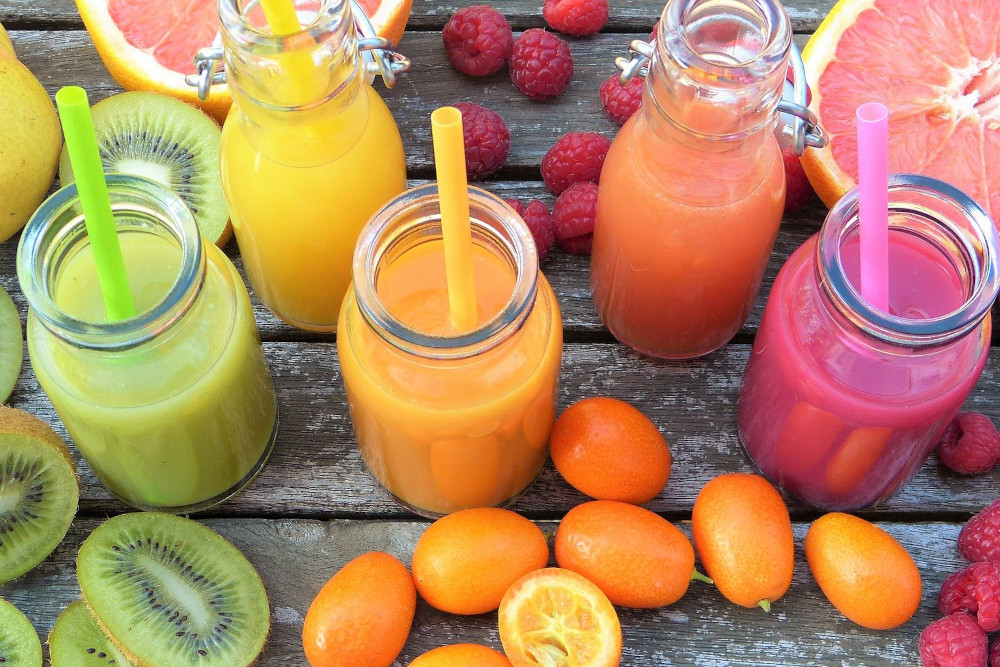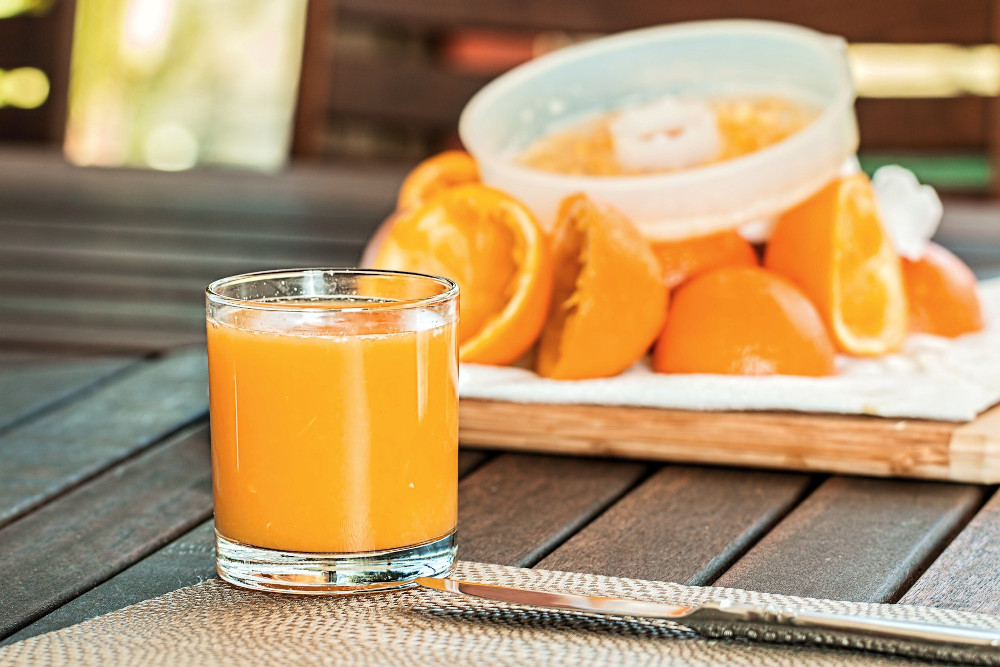With most of our favourite summer holiday destinations still relegated to the UK’s amber travel list, many of us have been left wondering whether we’ll manage to get away on a luxury holiday abroad this year – but with temperatures hotting up on home soil and a plethora of beautiful places to explore right here on our own shores, there’s no reason not to get out there and enjoy the happiest time of the year.
But, if the idea of putting away your jeans and jumpers to make way for skimpier summer attire is already filling you with fear, then you might be wondering if you’ve left it too late to feel body confident enough to enjoy it.
With famous fitness influencers flooding your Instagram feed by the day and peddling all of the latest ‘weight loss’ products, you might be tempted to try out a quick fix – but contrary to popular belief, this is far from the best way to achieve lasting weight loss. A bloat-busting tea or crash shake diet might seem like an attractive prospect when feeling like you’ve left it late to get in shape, but are they all they’re cracked up to be?
In a word, no. When it comes to the crunch, it’s really as simple as burning more calories each day than you are consuming, creating a calorie deficit that will help you to lose that stubborn fat in a more sustainable way.
Here, we take a look at some of the biggest weight loss fads and health trends out there and bust the biggest myths of the bunch.
The juice diet trend

Juice cleanses – which see participants replace all solid foods with fruit and vegetable juices for a predetermined amount of time – might sound dramatic, but have been a remarkably popular trend for a while now, with numerous celebrity fans extolling the virtues.
Marketed under a variety of labels – from ‘juice detox’ to ‘juice diet’’ and ‘juice fast’ – these temporary crash diets often require the purchase of a number of pre-made, bottles juices for you to drink throughout the day, replacing all meals and snacks and cutting calories drastically to achieve fast weight loss.
It might sound pretty healthy – after all, fruits and vegetables are packed to the brim with important nutrients, and there are few healthier foods on earth – so what’s the catch?
Myth-busting juice diets

The truth is that juicing diets aren’t a particularly healthy or effective method for fat loss or for ‘detoxing’ – the process of removing toxins from the body. Firstly, juices can only ever make up one of your ‘five a day’ of fruits and vegetables, because the process of juicing removes much of their dietary fibre – a key source of nutrients and satiety. In addition, they’re chock full of sugar, which can lead to erratic energy levels, feelings of hunger and cravings for something more substantial.
Juice diets are low calorie, but they aren’t sustainable. The fact is that once the diet is over, you’re likely to go back to the eating habits you had before – maybe with larger portions, given your newfound hunger! Like many fitness fads or dietary trends, juicing diets don’t provide a long-term, consistent and holistic approach to weight loss, and while you might see a dramatic drop in scale weight initially, this is most often water weight as opposed to fat.
Meanwhile, the ‘cleansing’ or ‘detoxing’ properties of juice diets are dubious at best. We have a variety of organs that detoxify our bodies on a daily basis, such as the liver and kidneys, so consuming nothing but fruit juices is unlikely to improve the performance of these organs in any way, and nothing in the juice itself will remove toxins from your bloodstream.
If you’re set on doing any kind of juice diet, you shouldn’t do it for more than a couple of days at a time, and should supplement it with at least some solid foods.
What is the weight loss supplement trend?

Only consuming juice each day certainly seems like a drastic dietary shift, so what about encouraging weight loss via supplements? There are plenty of weight loss supplements or fat burners on the market today that claim to be all natural and perfectly healthy, often promoted through social media in the form of pleasingly crafted pills or gummies. Plus, it’s pretty easy to work them into your diet – simply pop a few in between meals or prior to a workout, and you’re good to go – right?
It all sounds very attractive – but are they all they’re cracked up to be? In a word, no. There are a multitude of reasons that these slimming supplements aren’t the effective low stress solution we’ve been waiting for – and in some cases, they can even be dangerous.
Myth-busting weight loss supplements

Some weight loss supplements claim to actively stimulate metabolism and fat burning within the body, while others simply act as appetite suppressants. The range of purported health claims for supplements is as vast as their chemical makeups, with some of the most common ingredients include caffeine, green tea extract, and glucomannan. These are either used on their own, or more often, combined together with flavourings into an attractive pill or gummy, making them more palatable and enjoyable to incorporate into users’ days.
These ingredients do have some merit to them. Caffeine, for example, is the most consumed stimulant in the world, and can encourage fat burning while also functioning as an appetite suppressant. That being said, most of us have a pretty high tolerance for the substance already due to our daily cups of tea and coffee – so do we really need to be taking more?
There’s also some truth in the fact that glucomannan, a plant-derived dietary fibre, can act as an effective appetite suppressant. It’s an exceptional liquid absorber that sits inside your gut to create a feeling of fullness and might stop you reaching for quite so many snacks. But nonetheless, neither of these ingredients are enough on their own to help you achieve healthy and sustainable weight loss. They might make you feel like eating a little less, but starving yourself can have a detrimental impact on the body in the long-run. Eating too little and losing weight too quickly can mean that you lose muscle instead of fat – and considering that lean tissue is crucial for driving our metabolism, it can make weight loss harder in the long-run.
While some of these supplements contain ingredients that can work, plenty of others are dubious at best and don’t have any real clinical data behind them. Often these supplements simply amount to chewables that temporarily satiate us and hopefully prevent us from overeating. That might be worth the money in some cases, but it’s as dependent on discipline as anything else – you’ll need to be eating and exercising right anyway, and avoid getting tricked into bad dietary habits with the excuse that you’re eating ‘slimming’ gummies.
Taking your time to live well

When it comes to weight loss through crash dieting, there is really no such thing as a quick fix, and achieving and maintaining your goal weight relies on implementing healthier habits that will last a lifetime. Going back to basics, it’s simply about burning more calories than you consume – which means controlling what you eat and getting more movement into your day – whether that’s upping your daily steps, or adding in a few weekly sessions at the gym.
Of course, there are other things you can do to help you reach your goals, mainly taking a holistic approach that creates all of the conditions the body needs to let go of that stubborn fat. Cutting down on processed and high-sugar foods, reducing your alcohol consumption, getting enough sleep – and practicing stress-busting techniques such as meditation – will all go a long way to setting you off on the path to success.
Do weight loss pills work?

Sometimes, when lifestyle changes alone don’t quite seem to be cutting it, you might feel that you need a little extra help – and while diet supplements certainly aren’t the answer on their own, one anti-obesity medication has been deemed safe and effective based on the results of multiple trials.
Orlistat capsules, otherwise known as Xenical, can help to support a healthy lifestyle, which includes a balanced diet and plenty of movement – but do bear in mind that they are a prescription-only medication that will only be prescribed by a medical professional it if you have a BMI of 30 or more, or a BMI (Body Mass Index) of 28 or more in addition to other health conditions such as high blood pressure or diabetes.
When taken as prescribed alongside a low fat diet and exercise, Orlistat has been shown to be effective at preventing weight gain, absorbing up to one-third of the dietary fat you consume by attaching itself to digestive enzymes, known as lipases, and blocking a portion of the fat digestion process.
You’ll need to consult a medical professional if you’d like to add it to your regime – but for ease and convenience, online pharmacies such as e-Surgery provide licensed UK prescriptions for Orlistat alongside all important patient information and medication FAQs, all delivered to patients discreetly. Treatment courses start from as low as £16.95.
The final word
While weight loss might be an ultimate goal of yours this summer, do bear in mind that the number on the scales doesn’t always tell the whole story, and a regular workout regime and healthy diet will instigate changes in your body – and your mind – that simply can’t be described by your gravitational pull.
If you are in need of additional support with your journey towards a healthier you, then please book an appointment with your GP or doctor. Many of us would likely feel happier, healthier, and more confident on the beach if we could shift a few extra pounds, but please keep in mind that if you’re at the beach, you have a beach body – and you deserve to enjoy your summer, no matter what.
The post Myth-busting summer weight loss trends first appeared on Luxury Lifestyle Magazine.